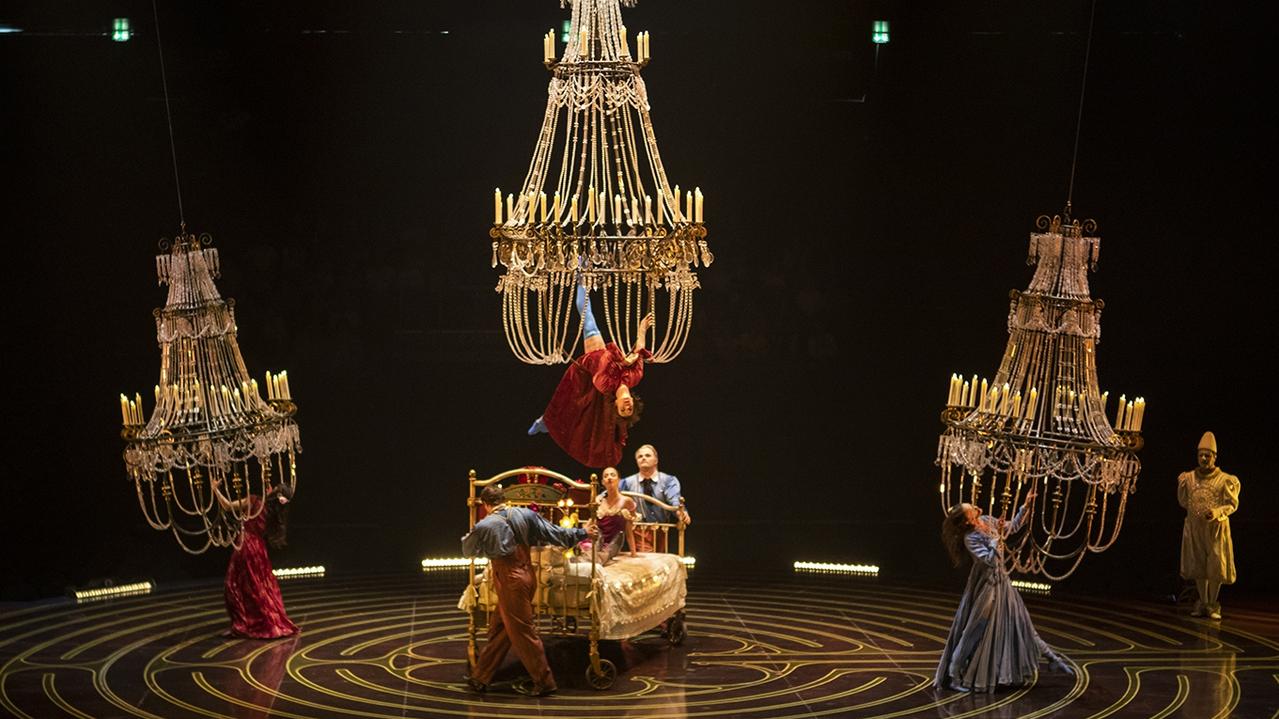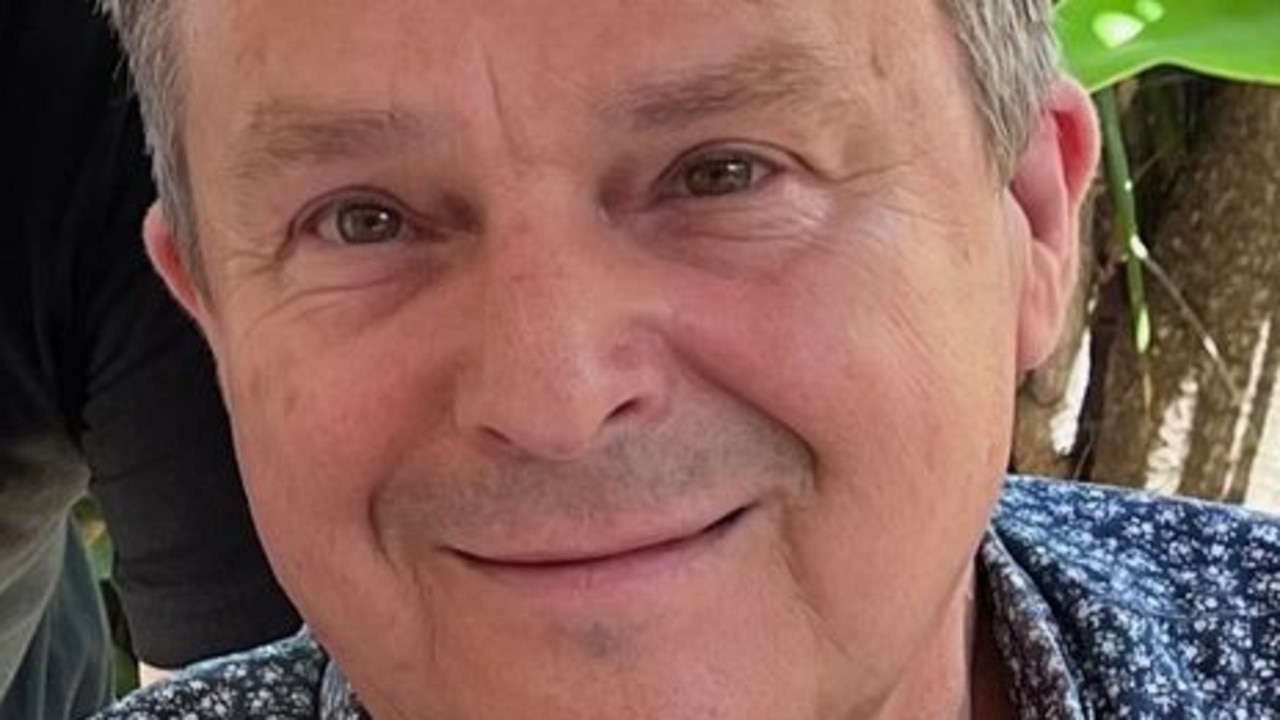Multicultural Australia: Why Looking for Alibrandi still relevant 30 years on
It has been three decades, but the stars of the new stage production of cult classic Looking For Alibrandi say it still raises questions about multiculturalism in Australia.
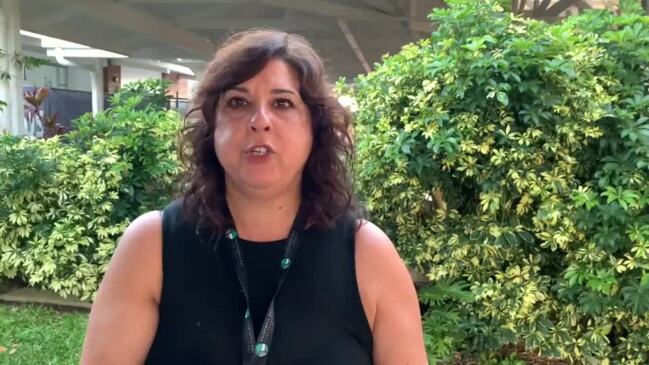
Arts
Don't miss out on the headlines from Arts. Followed categories will be added to My News.
It’s a sad fact that Looking For Alibrandi’s story about a migrant family trapped between two worlds and struggling with racism and cultural acceptance is just as relevant today as when it was written three decades ago.
And now a much-anticipated stage version will open at the Belvoir Theatre to shine a spotlight on uncomfortable truths about our so-called “classless society”.
Half-Italian, half-Samoan 26-year-old Chanella Macri will play Josie, and Lucia Mastrantone will play her mother Christina. Each have personal histories that reflect their characters, two of the three generations of women of the Alibrandi family.
“As a country we try to champion being open to diversity and classless – but we know that truth and the complexity of how hard it is for a country to be united when there are we do have a cultural pool of people with different spiritual beliefs, social and sexual beliefs – we’re still a long way off this ‘we are one’ crap,” Mastrantone said.
“Yes, we’re getting better but there are definitely a few more truths that we have to face.
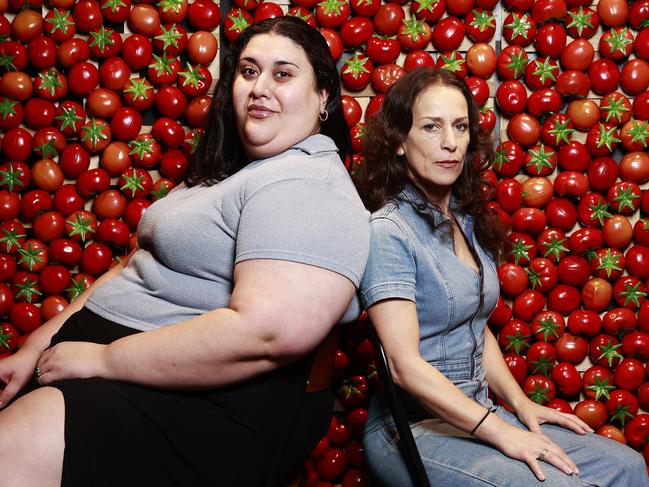
“What is interesting about the book is it really does look at the issue that the elephant in the room is that we pretend Australia is a classless country.
“It’s so not – and the book nailed it.
“Because the only way this girl could push herself forward was to work doubly hard.
“Because she was ethnic, she had to work – and a lot of people say that they’re from disadvantaged backgrounds, so they have to work twice as hard.”
For a lot of her life, Mastrantone was known as Lucy Masters – it was easier to say, according to her teachers, who made the decision for her.
A few decades later, Macri grew up with a name that embarrassed her – being a ‘big brown girl’ and not looking Italian – much like her character Josie, she felt she didn’t belong in either culture.
Despite society improving over the decades since the book was written, both women feel modern multicultural Australia still has a lot more to do.
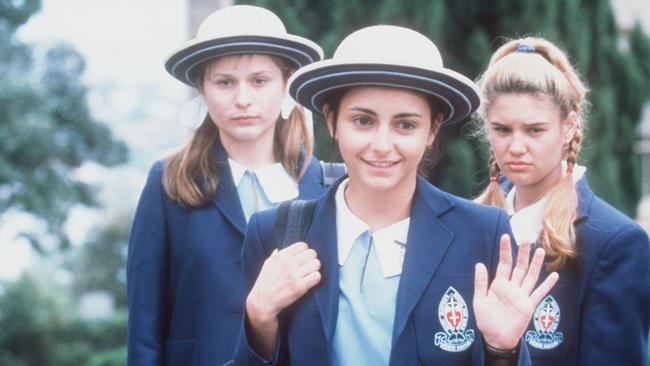
Mastrantone said the production celebrated people looking for their identity – and it had resonated with audiences at its recent Melbourne season.
“Once this woman came up to us who grew up with the book and this one Sicilian woman was so emotional and teary because she’d heard her dialect on stage and she said ‘that was me’,” an emotional Mastrantone said.
“She married an Indian man and they had this beautiful daughter that was half Sicilian, half Indian and she said she was so persecuted in her family – both families disowned their kids and she said the book gave her strength.”
For Macri, being half Samoan adds yet another level of complexity to issues at the heart of the book – a storyline that resonated with countless Italian migrants since it was written 30 years ago.
“It’s a big conversation, that sort of experience,” she explains.
“Our director Stephen Nicolazzo also has a really strong personal connection to that to the story and the history of that, and I think my generation benefited from that because when I was going through high school, being Italian wasn’t a point of contention.
“But so many people feel connected to the story, so it’s been a beautiful experience to be able to speak to others and have conversations with them about what the Alibrandi story has meant – it’s a big responsibility because of how big the story is.
“My mother is Samoan and my father’s Italian, and my mother really took on the role that she was expected to do as a wife – the serving and the servitude, they are great acts of love.
“So I remember growing up in those environments, in that world, where I’m a very good Italian girl – I mean I cook and I’ll be in the kitchen while everybody else doing other things – but those are just talking about those complexities and identities of time has moved the generation.
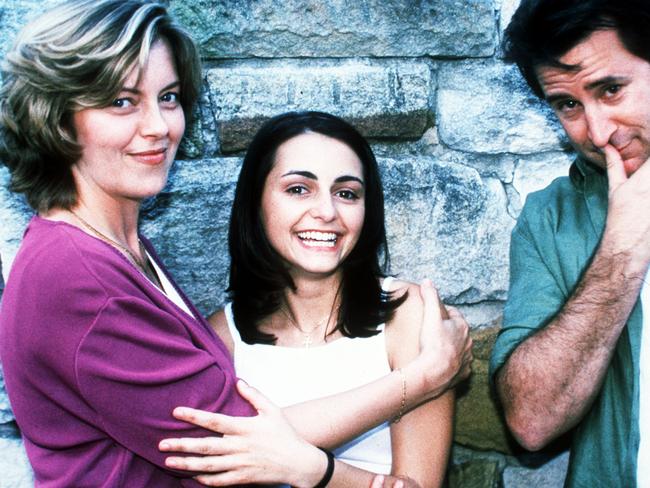
“So what are those things we grew up with – and I tend to challenge them and celebrate them.
“It’s also a really wild gift to be able to look at yourself through such a strong work – to look at the way you came up with your culture and identity and to be able to have these conversations.”
The film, which starred Pia Miranda, Greta Scacchi and Anthony LaPaglia, shared the story of three generations of women.
Now the much-loved modern classic novel and groundbreaking film is being brought to the Sydney stage for the first time, playing until November.
“But it’s not just a reminiscent look at Alibrandi – a hundred per cent it is paying homage to this beautiful classic, but also – the problem is alive and well,” Macri said.
“There are a few more truths to still face … I had a conversation with my father that I never had when I started Alibrandi because I said to him in passing that I didn’t look Italian, and he was very offended by that notion.
“He couldn’t understand why I didn’t align and identify myself as Italian, and why being big or being brown, I didn’t think of myself as Italian.
“And we had a dialogue about what it’s like to grow up in his family, not being able to speak Italian, what it’s like to have a brown mother … but also what it’s like for like, the really strong discrimination that’s in our communities.
“Like, my father speaks like, you know, or like, you know, yeah, there’s like there’s racism in our community as well.”
Mastrantone on the other hand, started kindy and couldn’t speak English. She was put in a “special class” for kids with learning difficulties – and still remembers that frustration.
“They were like: ‘You should be speaking English by now’, but my mother used to pinch my older sister whenever she spoke English, because we had to keep our culture and keep your language,” she said.
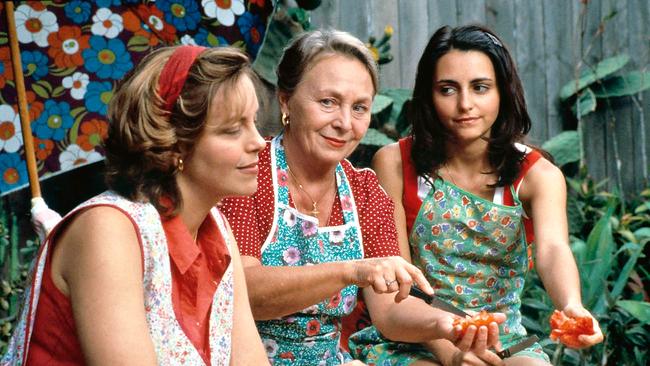
“I remember this frustration of being aggressive and crazy and wild – and I still feel that I still get when I sit in a room sometimes.
“And it might be because I’m too passionate or ‘too Italian’ or too much.”
It all started in primary school and growing up in 1990s Adelaide, she saw a lot of herself in her character’s daughter, Josie.
“All us ethnics all had our names changed … when people say Lucy it still triggers me,” Mastrantone said.
“Then I went to high school with lots of Anglos and I was one of three other wogs and we were scared to hang out together because you’d get called names.
“And then towards the end of the 90s, it was cool to be Italian – there was the ‘cup of chino’ and all that – that was when we were allowed to be both.
“Our parents weren’t.
“So this book was so important for our generation.
“It’s historically important, because Australia really tried to embrace multiculturalism, and the first attempt of trying to be representative of diversity, was with this book.
“In high school I said to my teachers I will no longer answer to Lucy, and I remember there was one particular teacher that just wouldn’t do it.
“He said the most horrible things to me – he was really racist.
“He said: ‘If you sit on your hands, you wouldn’t be able to talk’.
“But today, at the end of the day, there is such pride in so many of us.
“For a lot of Australians, whether you’re Italian or not, I think we all come from something somewhere else, except for First Nations people … and I think this piece is so cathartic.”
Not only did she struggle with not fitting in as a “wog”, she also fought battles within her extended Italian family, for choosing to be an actor.
“I moved to Sydney when I was 26,” the 53-year-old said.
“I was very shamed by the community.
“They would turn their back on me and literally spit on me as I walked into my cousin’s wedding or something, just because I decided to follow my dream.
“I knew my own family, my parents, loved me.
“And thankfully I started with an Italian bilingual Theatre Company in Adelaide and I toured all over Australia, all over the world and I was earning cash.
“But there was a generation of women – I know so many women that were just not allowed to go to uni and that breaks my heart – it kills me.”
Looking For Alibrandi will show at the Belvoir St Theatre from today until November 6.
belvoir.com.au




